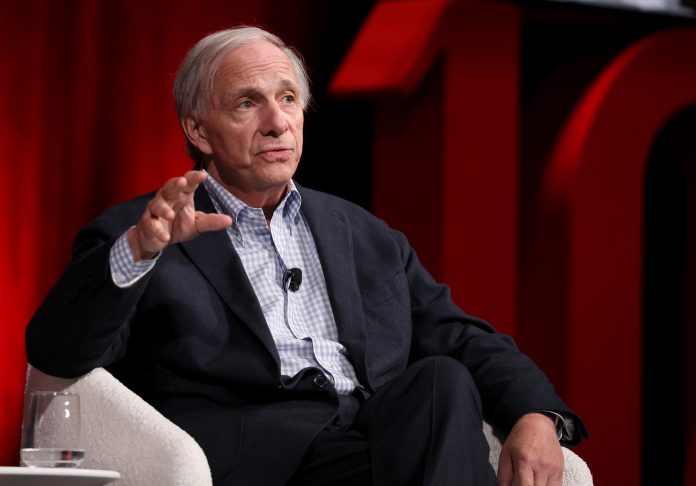Since stepping away from the day-to-day operation at Bridgewater, Ray Dalio has devoted much of his time and energy to sharing his thoughts with the world and mentoring the next generation. But as one person, the 76-year-old billionaire has limited time. To address that, Dalio is introducing “Digital Ray,” an A.I. clone built on decades of his values, perspectives and wisdom.
“It will allow me to have unlimited conversations with people I previously didn’t have the time to have exchanges with,” he said in an X post unveiling his chatbot. Interested users can join a waitlist to try the product, which is currently in beta and can communicate through both text and voice.
Dalio describes Digital Ray as a natural extension of what he’s been doing for decades. Shortly after founding Bridgewater in 1975, he began documenting his decision-making processes and feeding them into computers to improve company operations. The approach clearly worked: Dalio’s net worth now stands at an estimated $15.4 billion, and Bridgewater manages nearly $100 billion in assets, making it one of the world’s largest hedge funds.
To share his ideas more broadly, Dalio has authored several best-selling books, host Q&As on social media, and even launched an advice app called Coach. His thinking took a new turn in 2022 after the release of ChatGPT. Inspired by the technology, Dalio decided to train a large language model (LLM) on his own data—work that ultimately led to Digital Ray. “With the help of my great team, I now have my first version of an A.I. clone of myself that can have conversations with people that are roughly as good as the conversations they could have with me, but without the time limitations that I have,” he said.
Over the past two years, hundreds of independent testers have evaluated Digital Ray’s responses. According to Dalio, it now performs about 95 percent as well as he does when discussing life and work, and 80 percent when analyzing markets, investing, economics, politics and geopolitics. Those numbers, he said, should improve as the model continues to absorb more of his thinking. Eventually, Dalio predicts, it will become “much better educated and much better at processing many complex considerations more quickly than I can.”
Dalio stressed that his digital clone differs from both A.I. agents and general-purpose LLMs. Agents carry out tasks, and LLMs aggregate information from countless sources, but both “lack the values, perspectives and preferences that are important to human decision-making,” he explained. A.I. clones like Digital Ray, by contrast, are designed to emulate a specific person’s way of thinking and reflecting.
Dalio isn’t alone in exploring A.I. cloning. LinkedIn co-founder Reid Hoffman created a similar experiment called “Reid AI” last year, even holding a video conversation with his digital counterpart. Klarna CEO Sebastian Siemiatkowski has used an A.I. avatar to present his company’s quarterly earnings, and Zoom chief Eric Yuan has said his company plans to develop “digital twins” capable of attending meetings and making decisions for users.
Dalio envisions a similar future. “I believe that the evolution of A.I. will lead to people having their own personalized A.I.s that will be called “My A.I.s” that will take in and keep out information to make sure they are well curated to suit each person’s preferences,” said Dalio, adding that he would love to eventually congregate of group of A.I. clones to work together as a committee of advisors. “Who knows where this thing could go? I want to help push the limits to find out.”


